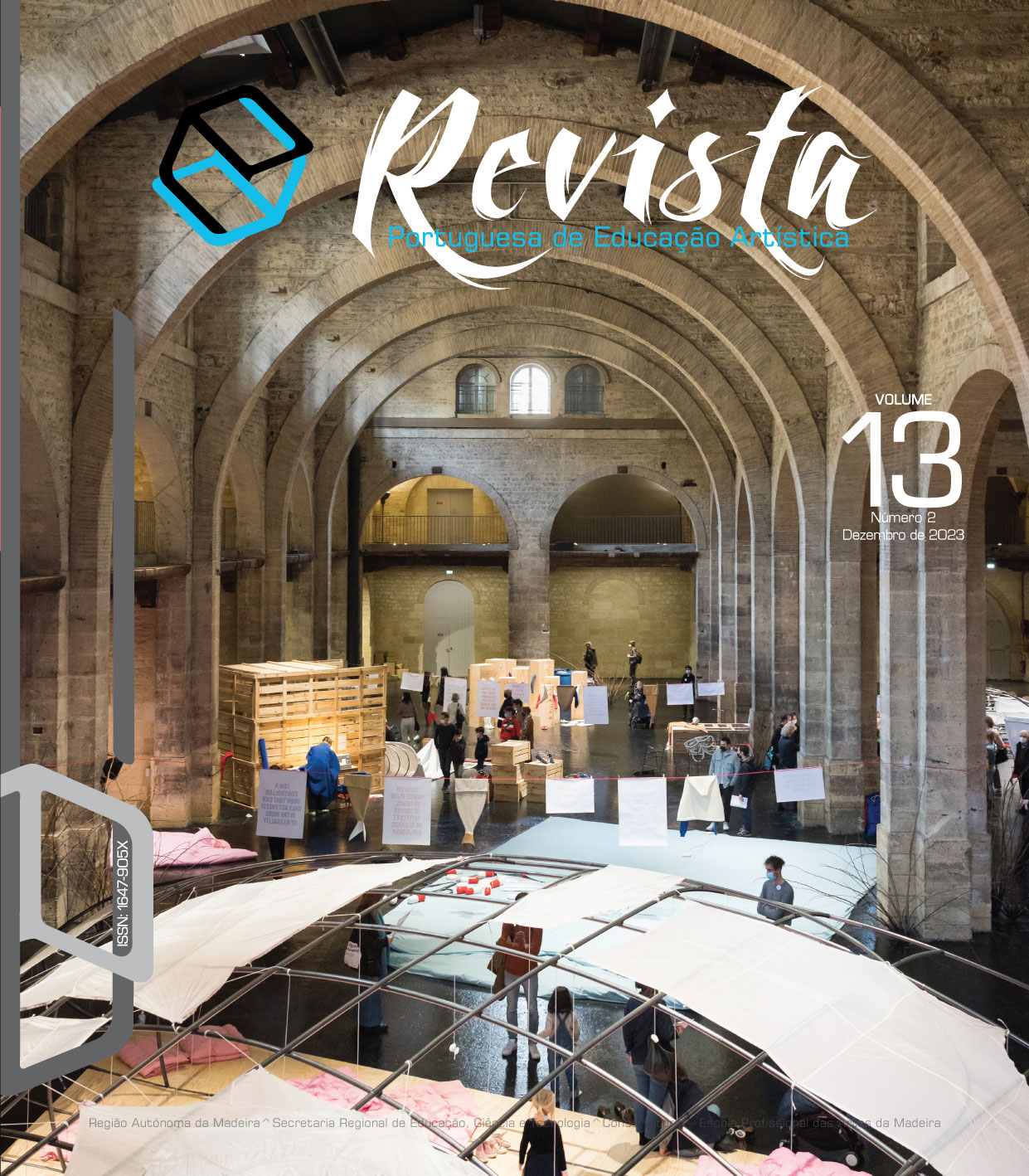Current Issue

RPEA, is a peer-review journal dedicated to arts education, disseminating articles about theory and practice in related fields such as Musical Education; Dance; Theatre; Plastic Arts; Musicology and History of the Arts, published by the Regional Conservatory of the Arts in Madeira. It was created in 2011 and has published articles by relevant scholars in Portuguese and Spanish languages.
This issue of the journal integrates articles from the World Alliance for Arts Education Summit hold during 1-3 March 2023, in Funchal an organized by the Regional Conservatory with the support from the Regional government of Madeira. The World Alliance for Arts Education (WAAE) is a global arts alliance between international arts education organizations: the International Theater/Theatre and Education Association (IDEA); the International Society for Education through Art (InSEA); the International Society for Music Education (ISME) and the World Dance Association (WDA). The theme of the congress was ‘Heritage and Sustainability: Sustainable Islands of Culture and Arts Education and during the congress, participants were able to discuss the draft of the recently ratified UNESCO Framework for Culture and Arts education resulting in a useful list of recommendations. This special RPEA issue 14 (2) is, therefore, a result of that important event.
Reading the articles through the metaphor of arts education as islands in a metaverse and pluriverse world, this issue brings very important issue to be further discussed. Including dialogues by experts in visual arts education; music education; theatre and museum education from very distant geographical and cultural context such as Brazil; Canada; Czech Republic Republique of Singapore and Portugal.
Collaboration in music pedagogies and collaborative didactics are approached by Tessandra Wendzich and Bernard W. Andrews, from the University of Ottawa, Canada, with the article ‘The New Sounds of Learning: Composing music for young musicians’, were they talk about a research project partnered with the Canadian Music Centre and the Ottawa Catholic School Board intending to understand parameters of writing repertoire for young musicians, discussing students’ thoughts and reflections on music composition.
Rebecca Heaton and Yuzhu Sun, from Nanyang Technological University discuss art education in the metaverse reflecting upon the Interaction between the physical and digital worlds, integrating culture and education in the crypto realities of blockchain and e-learning business, they acknowledged a few challenges for arts education in the present times.
Transcultural and intercultural issues are approached through the lenses of music and theatre; acknowledging the need to learn traditional forms of arts as well as to understand the hybrid condition of new forms. As discussed by Weijie Yu from the Nanyang Academy of Fine Arts, Republic of Singapore writing about the Preservation and Practice of the beautiful Tradition of Xiqu in Mandarin Drama Curriculum Design and Actor-Teaching. Teresinha Rodrigues Prada Soares, from Universidade Federal de Mato Grosso, Brazil talks about intertextuality and hybridity between the western so called erudite and popular cultures, through the musical repertoire of formal higher education for guitar (bachelor’s degree ).
Kristýna Říhová, Anežka Kantorová and Eliška Jelínková from National Gallery Prague & Charles University in Prague bring a fantastic case study showing the excellent dynamics of the Educational service in the National Gallery in Prague, this time about the program accompanying the amazing exhibition by Eva Koťátková ‘ My Body is not an Island’, through transformative pedagogical practices of gallery education for schools and public in general. Also in the area of arts and museum education, Mirian Celeste Martins and Maria Elisa Sousa Lopes contribute to the transformative power of arts in creating learning and ludic environments, as it is the case in the studies developed for museums in S-Paulo by students from Pedagogy from the P Mackenzie University, Brazil, they describe in their article ‘Educational Ambiences: Expanding Artistic/Cultural Backgrounds of Pedagogy Course Students in Brazil’.
Advocacy for the arts, culture and arts education in Europe is firmly referred in the article ‘Structural Barriers to Accessing Culture, by Liliana Rodrigues from Centro de Investigação em Educação, University of Madeira (CIE-UMa) and Elisabete Oliveira, from University of Lisboa claims for the acknowledgement for visual arts education as a patrimony in itself providing an exhaustive report about the history of visual education curriculum in Portugal and the benefits of visual arts & design education for the SDG and UNESCO educational goals .
We may feel arts education is in the margins; we may feel difficult to cross the waves between cultures, between present and past, between traditional and contemporary technologies. Arts education in its many fields may be seen as separate islands, in a first glimpse, but looking attentively to the details, we will find similar configurations as well as specific domains of learning that need to be preserved and transformed. As we read through the articles of this issue, we navigate from island to island, feeling we belong to a greater archipelago rich in variety of landscapes, were creative artistic learning occurs.



